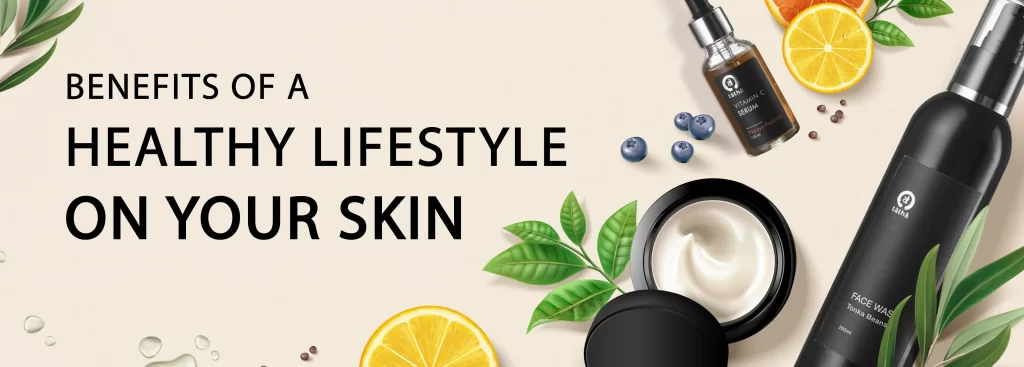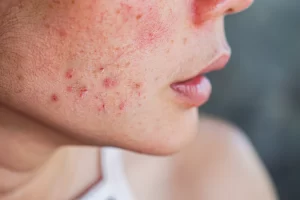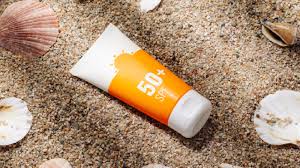Lifestyle And Your Skin: How Diet, Sleep, And Stress Affect Your Glow

Lifestyle And Your Skin: How Diet, Sleep, And Stress Affect Your Glow
How does lifestyle affect your skin?
Your lifestyle has a profound and multifaceted impact on the health and appearance of your skin. Here’s a breakdown of key factors:
1. Diet:
- The Good: A balanced diet rich in fruits, vegetables, whole grains, and lean proteins provides essential vitamins, minerals, and antioxidants that1 nourish the skin from within.
- Antioxidants (from berries, leafy greens, etc.): Fight free radical damage caused by environmental factors, helping to prevent premature aging and protect skin cells.
- Healthy Fats (Omega-3s from fatty fish, nuts, seeds): Support the skin’s lipid barrier, keeping it hydrated, supple, and reducing inflammation.
- Vitamins (A, C, D, E): Play crucial roles in cell regeneration, collagen production, and protection against UV damage.
- Zinc: Important for wound healing and has anti-inflammatory properties.
- The Bad: Diets high in processed foods, refined sugars, and unhealthy fats can negatively affect the skin.
- High Sugar Intake: Can lead to glycation, a process where sugar molecules bind to collagen and elastin, making them stiff and contributing to wrinkles and sagging. It can also trigger inflammation and acne.
- Dairy: May trigger acne in some individuals due to hormones present in milk.
- Processed Foods and Unhealthy Fats: Can promote inflammation throughout the body, potentially exacerbating skin conditions like acne, eczema, and psoriasis.
- Dehydration (Low Water Intake): Leads to dry, dull skin and can make fine lines more noticeable.
2. Sleep:
- The Good: Adequate, quality sleep is crucial for skin repair and regeneration. During sleep, the body produces more collagen, which helps maintain skin elasticity and reduces the appearance of fine lines. Blood flow increases, delivering oxygen and nutrients to the skin, leading to a healthier complexion.
- The Bad: Lack of sleep can lead to:
- Increased Cortisol Levels: This stress hormone can trigger inflammation and worsen skin conditions like acne and eczema.
- Dark Circles and Puffiness: Sleep deprivation can cause blood vessels to dilate under the eyes and fluid retention, leading to these common signs of fatigue.
- Dull Complexion: Reduced blood flow and impaired cell turnover can make the skin look pale and lifeless.
- Premature Aging: Chronic sleep deprivation can accelerate the aging process by hindering the skin’s ability to repair itself.
3. Stress:
- The Bad: Chronic stress significantly impacts skin health through the release of stress hormones like cortisol.
- Increased Inflammation: Cortisol can trigger inflammatory responses in the skin, leading to flare-ups of acne, rosacea, eczema, and psoriasis.
- Increased Oil Production: Stress can stimulate the sebaceous glands to produce more sebum, clogging pores and contributing to breakouts.
- Impaired Skin Barrier Function: Stress can weaken the skin’s protective barrier, making it more susceptible to dryness, sensitivity, and environmental damage.
- Slower Wound Healing: Stress can interfere with the skin’s ability to repair itself.
- Premature Aging: Prolonged high cortisol levels can break down collagen and elastin, leading to wrinkles and loss of firmness.
- Unhealthy Coping Mechanisms: Stress can lead to behaviors like picking at skin, which can cause further damage and scarring.
4. Smoking:
- The Very Bad: Smoking has numerous detrimental effects on the skin:
- Premature Aging: Toxins in cigarette smoke damage collagen and elastin, leading to significant wrinkling, sagging, and a leathery texture. Smokers often develop wrinkles much earlier than non-smokers.
- Reduced Blood Flow: Nicotine constricts blood vessels, reducing oxygen and nutrient supply to the skin, resulting in a dull, greyish complexion and impaired healing.
- Increased Risk of Skin Cancer: Smoking increases the risk of squamous cell carcinoma, a type of skin cancer.
- Worsened Skin Conditions: Smoking can exacerbate conditions like psoriasis, hidradenitis suppurativa, and lupus.
- Delayed Wound Healing: Smoking impairs the skin’s ability to repair itself after injury or surgery.
5. Alcohol Consumption:
- The Bad (in excess): Excessive alcohol intake can dehydrate the body, including the skin, making it look dull and accentuating fine lines. It can also cause inflammation and redness and may worsen conditions like rosacea. Over time, chronic alcohol abuse can contribute to premature aging.
6. Exercise:
- The Good: Regular physical activity improves blood circulation, which helps deliver oxygen and nutrients to the skin cells, promoting a healthy2 glow. Exercise can also help manage stress levels, indirectly benefiting the skin.
In conclusion, a healthy lifestyle is paramount for maintaining healthy, youthful-looking skin. By prioritizing a balanced diet, sufficient sleep, stress management, avoiding smoking and excessive alcohol, and engaging in regular exercise, you can significantly influence the health and appearance of your skin over time.
Can diet make your skin glow?
Yes, absolutely! Diet plays a significant role in the health and appearance of your skin, and it can definitely contribute to a healthy “glow.” The skin, being the largest organ in your body, reflects what’s happening internally.
Here’s how diet can make your skin glow:
1. Providing Essential Nutrients:
- Vitamins: Vitamins A, C, E, and several B vitamins are crucial for skin cell regeneration, collagen production, and protection against damage. For example, Vitamin C is essential for collagen synthesis, which keeps skin firm and radiant.
- Minerals: Zinc, selenium, and copper are involved in skin repair, elasticity, and protection from oxidative stress.
- Healthy Fats (Omega-3 and Omega-6): These fats help maintain the skin’s lipid barrier, keeping it hydrated, supple, and reducing inflammation, which can contribute to a healthy glow.
2. Delivering Antioxidants:
- Fruits, vegetables, and green tea are rich in antioxidants. These compounds combat free radicals – unstable molecules that damage skin cells and contribute to aging and dullness. By neutralizing free radicals, antioxidants help protect the skin, leading to a brighter and more even complexion.
3. Promoting Hydration:
- While drinking water is essential for overall hydration and skin health, certain fruits and vegetables (like watermelon, cucumber, and strawberries) have high water content and contribute to skin hydration from the inside out, giving it a plump and dewy appearance.
4. Reducing Inflammation:
- Diets high in processed foods, refined sugars, and unhealthy fats can promote inflammation throughout the body, potentially leading to skin issues like acne and dullness. An anti-inflammatory diet rich in fruits, vegetables, and omega-3 fatty acids can help calm the skin and improve its radiance.
Foods that contribute to a glowing complexion often include:
- Fruits: Berries (rich in antioxidants), citrus fruits (high in Vitamin C), papaya (contains enzymes that can exfoliate), and watermelon (hydrating).
- Vegetables: Leafy greens (packed with vitamins and antioxidants), carrots and sweet potatoes (high in beta-carotene for a healthy tone), and bell peppers (rich in Vitamin C).
- Healthy Fats: Avocados, nuts, seeds, and fatty fish (like salmon) provide essential fatty acids.
- Green Tea: Contains powerful antioxidants that can improve skin elasticity and reduce redness.
- Water: Staying adequately hydrated is fundamental for a healthy and radiant complexion.
In essence, a balanced diet rich in vitamins, minerals, antioxidants, and healthy fats, combined with sufficient hydration, provides the building blocks and protection your skin needs to look healthy and naturally glow. While topical skincare is important, nourishing your skin from within through diet is a powerful way to enhance its radiance.


